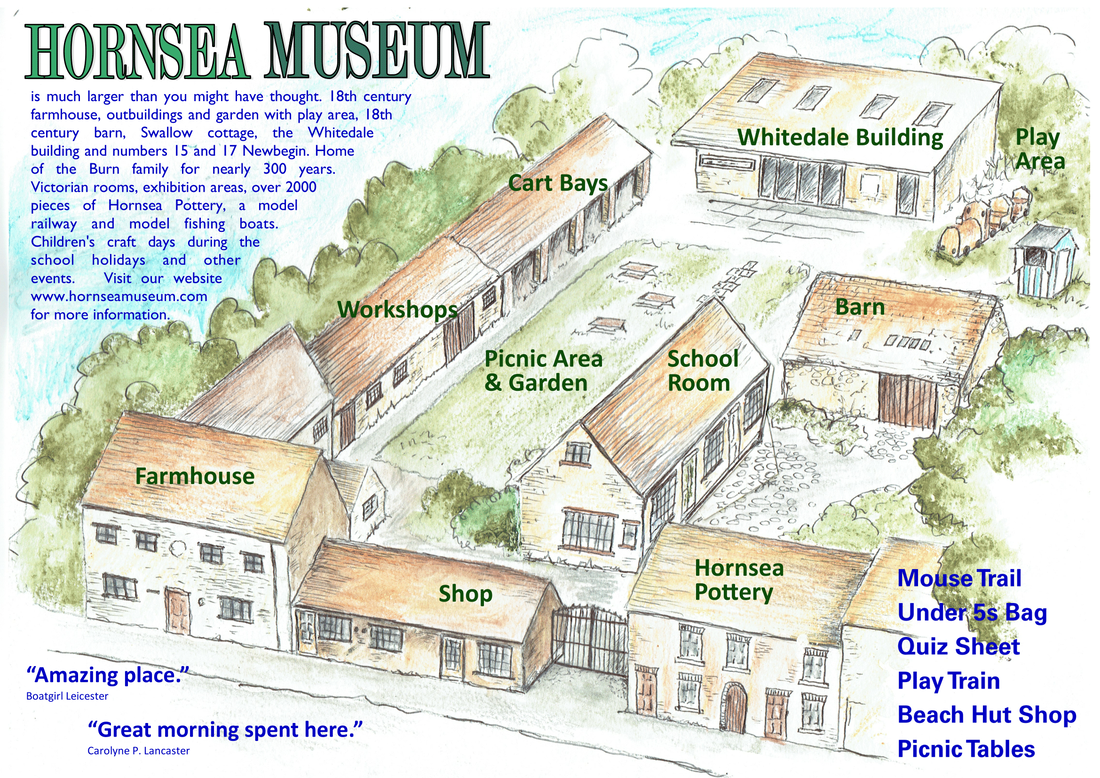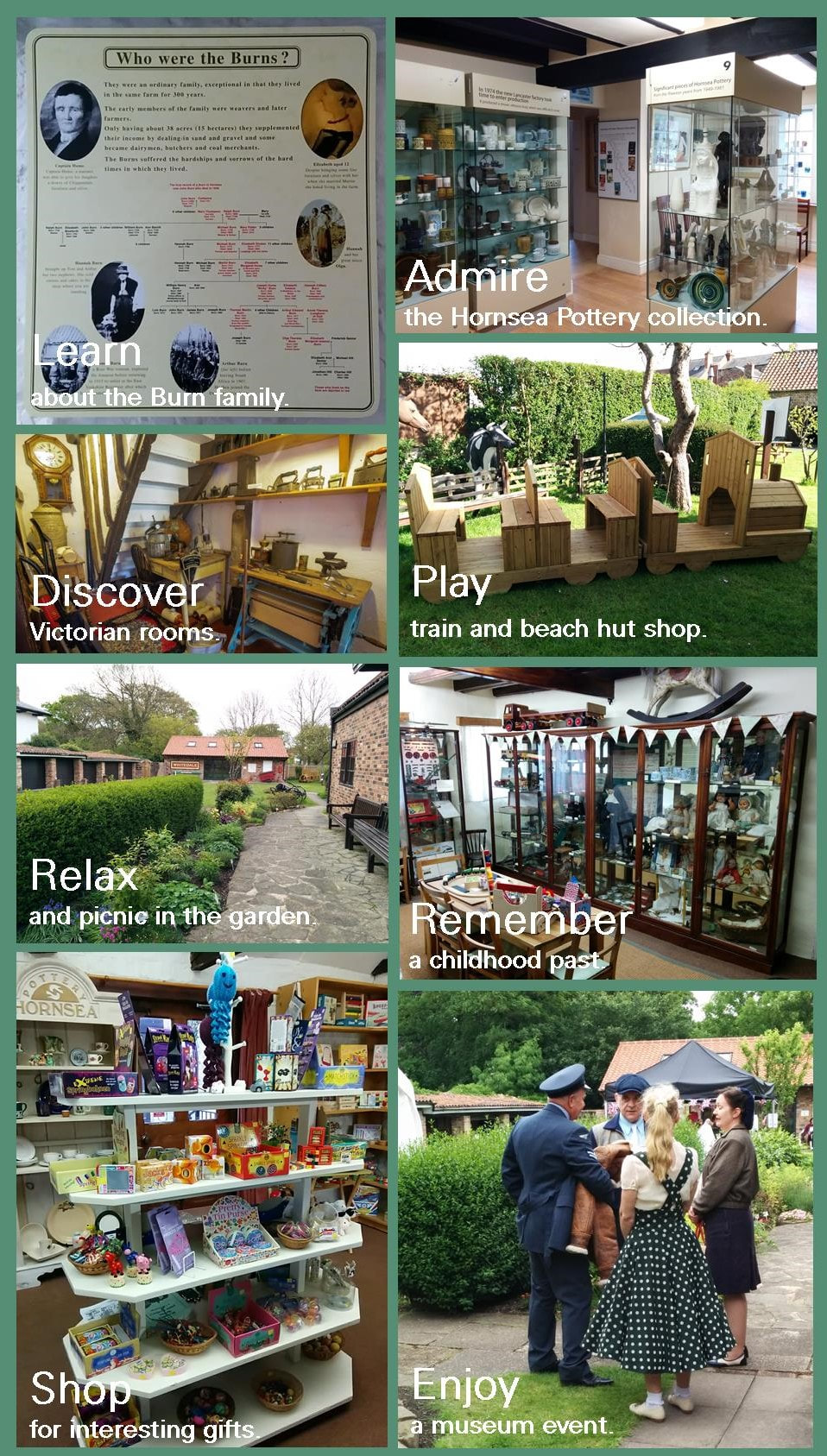Hornsea Museum
2024 OPENING 23 MARCH - 3 NOVEMBER
OWING TO THE BEER FESTIVAL EVENT ON FRIDAY 12 & SATURDAY 13 JULY MUSEUM DISPLAYS WILL BE CLOSED. ACCESS IS FOR THE EVENT ONLY. PLEASE REFER TO THE EVENTS SECTION FOR FURTHER DETAILS
THE MUSEUM IS OPEN AS USUAL FROM MONDAY 15 JULY
SORRY FOR ANY INCONVENIENCE.
THE MUSEUM IS OPEN AS USUAL FROM MONDAY 15 JULY
SORRY FOR ANY INCONVENIENCE.
|
|
Six buildings with nineteen display areas, Hornsea Museum is much larger than you might have thought. Something for all the family. 18th century farmhouse, outbuildings and garden with play area, 18th century barn, Swallow cottage, the Whitedale building and numbers 15 and 17 Newbegin. Home of the Burn family for nearly 300 years. Victorian rooms, exhibition areas, over 2000 pieces of Hornsea Pottery, a model railway and model fishing boats. Children's craft days during the school holidays and other events.
|
Front of house volunteers needed !!!! Could you spare half a day a week?
Please call or email for more information
Please call or email for more information
SALE OF ANTIQUE and VINTAGE ITEMS
Hornsea Museum operates a transparent disposal policy in line with the Museums Association guidelines in their ethical disposal toolkit. This allows us to dispose of items from the collection or recently donated items (with permission of the Hornsea Museum Board) which are duplicated, in poor condition, outside our Collecting Policy (North Holderness) or lacking provenance (its past use and origin).
Once permission has been granted by the Board, these unwanted items will be offered free to local public institutions and, if there are no takers, these items will then be sold and any money made will only be used on the care of the collection
Once permission has been granted by the Board, these unwanted items will be offered free to local public institutions and, if there are no takers, these items will then be sold and any money made will only be used on the care of the collection




